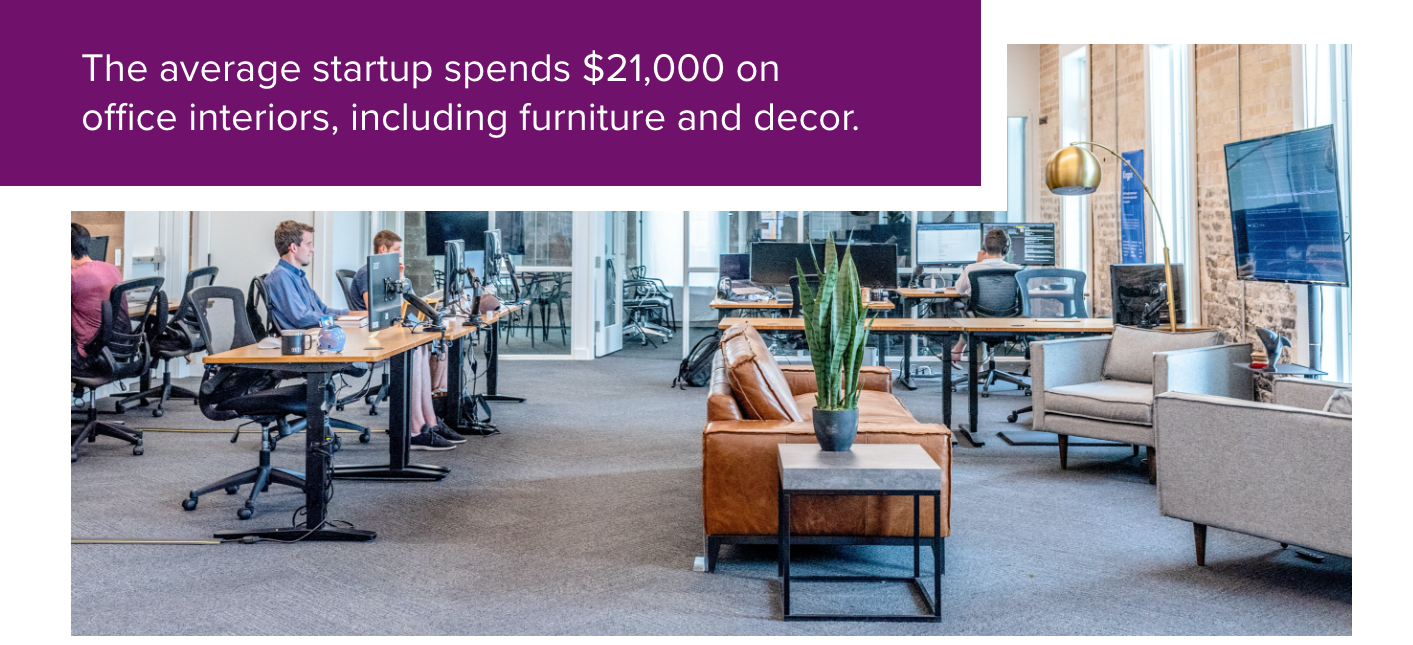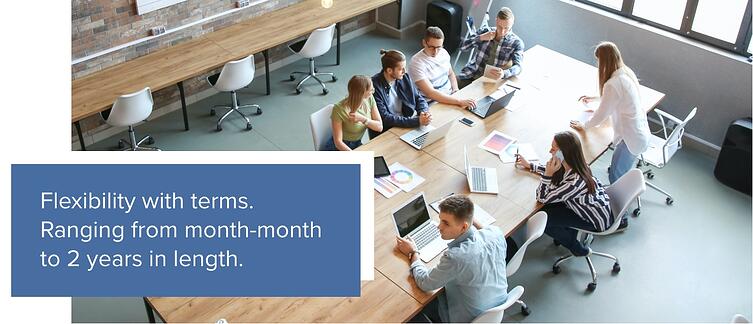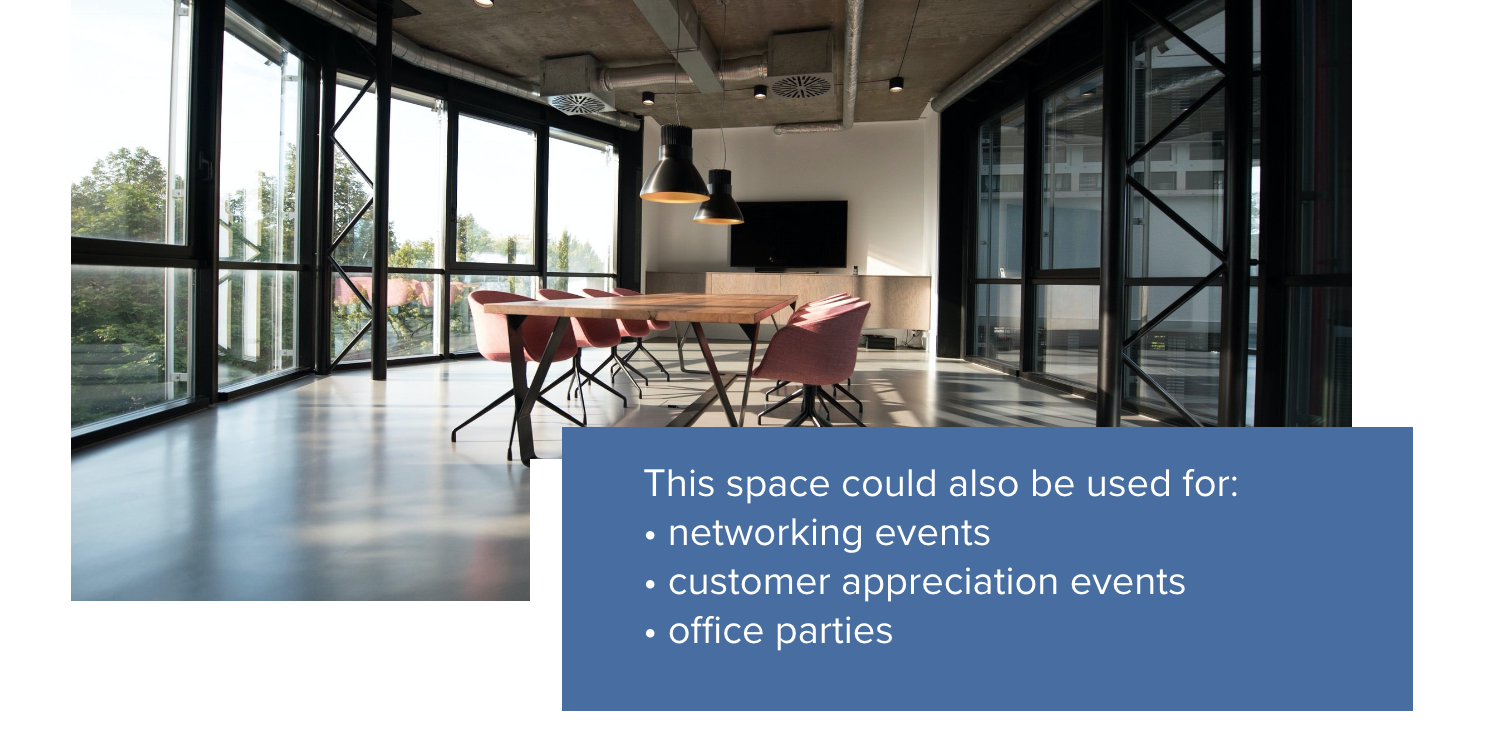Coworking space is well-known for the many benefits it provides to a company’s culture and work environment. However, flexible office space creates advantages that extend far beyond improved culture and camaraderie. In fact, even those traits viewed as qualitative benefits like an improved employee experience and better engagement have a significant impact on a company’s financials as well.
Coworking space gives companies a wide range of benefits that traditional office space cannot match, first and foremost on their financial statements. We’re going to take a closer look at seven key economic benefits of coworking space that people love and see how they positively affect a company’s top-line performance and productivity.
1. Flexibility & Scalability
A dynamic business environment means companies need the ability to flex with the marketplace. Coworking space provides that flexibility with terms ranging from month-to-month to two years in length. Companies can use that flexibility to expand and contract as needed without a long-term lease constraining them. For rapidly growing companies, this flexibility also means they can quickly scale, able to easily pivot to larger space, or even enter new markets without the barriers to entry caused by cumbersome traditional leases.
2. Fees
Fees in a coworking space can be significantly lower than a traditional lease in a comparable space. Of course, the amount of savings depends on factors like the length of agreement and number of desks but, for the most part, companies should expect to pay less. Ancillary costs in traditional office space like moving expenses, furniture, utilities, a high-speed internet connection, maintenance, and others only amplify the savings with coworking space. Together, these different cost efficiencies make upscale locations attainable for enterprises that could not otherwise afford them.
3. Community
The sense of community within coworking spaces provides a measurable economic benefit for companies in different ways. First, sharing space with other companies, often from a variety of industries, drives an innovative spirit. It helps employees think and view concepts from different angles that, when funneled into operations, can drive growth. Also, simply being near other organizations increases networking opportunities as well as potential strategic alliances with like-minded companies.
4. Collaboration
A direct product of community, collaboration has a way of providing an energy and spark to an office and its employees. Rather than the sometimes narrow mindsets of a siloed team, a collaborative environment boosts people’s engagement with both their work and coworkers. According to recent research, highly engaged teams display over 40% less absenteeism and 17% higher productivity than non-engaged teams. Naturally, both of these statistics speak well of coworking spaces and their inherently collaborative environments.
Highly engaged teams display over 40% less absenteeism and 17% higher productivity.
5. Furnishings
Many companies overlook or underestimate the economic impact of furnishing office space. The average startup spends $21,000 on office interiors, including furniture and decor. For smaller teams, startups, and bootstrapped enterprises, such an expense can have a significant effect on their cash flow. That’s money better spent on operations, talent, technology, or any number of other areas. Since coworking spaces come fully furnished, that’s one less worry and expense that a company must address when moving in.
 6. Amenities
6. Amenities
Coworking spaces provide a range of amenities that help drive everything from employee satisfaction to streamlined operations. Some are more employee perks like an onsite coffee shop serving locally brewed coffee, beer on tap, kitchen facilities, and exercise equipment, but others help make a company more productive and effective. For instance, soundproof phone booths can be a distinct advantage for a salesperson that relies on phones to follow-up on leads. Amenities like meeting rooms wired for video conferencing, printing facilities, and a receptionist all help make a company more efficient and, therefore, more productive. Also, given the popularity of many common amenities, they can be a valuable tool in both attracting and retaining key talent.
7. Event Space
An amenity in its own right, event space is another often overlooked benefit to coworking spaces that enterprises can use to their advantage. Having a designated space within the property that can serve as a large conference room for bigger meetings and gatherings can be a significant advantage that traditional leased office space doesn’t afford. Aside from housing conferences and meetings, companies also use such spaces for networking events, customer appreciation events, and office parties for special occasions. All of these examples correlate with potential improvements in top-line performance, either directly or through greater employee satisfaction and engagement.
Possible Drawbacks to Coworking Space
Of course, some companies and decision-makers are still hesitant to try coworking space for their organization. However, as the flexible office space evolves to meet the demands of a larger range of industries, most of the factors driving that hesitancy – if not all – already have effective solutions in place that address those factors.
Privacy
Some people still view coworking space exclusively as a bustling shared workspace filled with freelancers that might excel in things like innovation and collaboration but don’t offer much privacy. For a medical practice, for instance, patient privacy is of utmost concern and must be protected at all times. However, while the typical coworking space from five years ago might have been incapable of providing sufficient privacy to a medical practice, today’s spaces offer private offices or suites that address such issues.
Distractions
If an organization needs a calm, quiet environment without a lot of distractions and noise, some coworking spaces would not be a good fit. However, like most common pain points involving flex office space, choosing a coworking space that suits a company’s specific needs can make all the difference. Once again, a private office or suite removes such distractions and provides a company with dedicated space that’s all its own. Also, simply choosing a coworking space with a more sedate environment will minimize distractions and unwanted noise.
Choosing a coworking space that suits a company’s specific needs can make all the difference.
Lack of Control
Some companies prefer a completely shared coworking environment and the benefits it brings to their corporate culture. Others, however, want to wield more control over their work environment and the way it impacts their team and culture. While a typical shared space with other companies can make it challenging to attain that level of control, custom buildouts within a flex office space give teams the look, feel, and vibe they need for their brand and culture, all at little or no cost to the tenant.
We’ve looked at the economic benefits of coworking space, as well as some of its potential drawbacks, to provide you with a thorough, unbiased perspective. As always, it’s important to look at your own specific needs and demands when choosing coworking space to ensure you find one that serves your organization well. Pick the right space and it could very well turn into one of your enterprise’s most valuable assets.



This Post Has 0 Comments